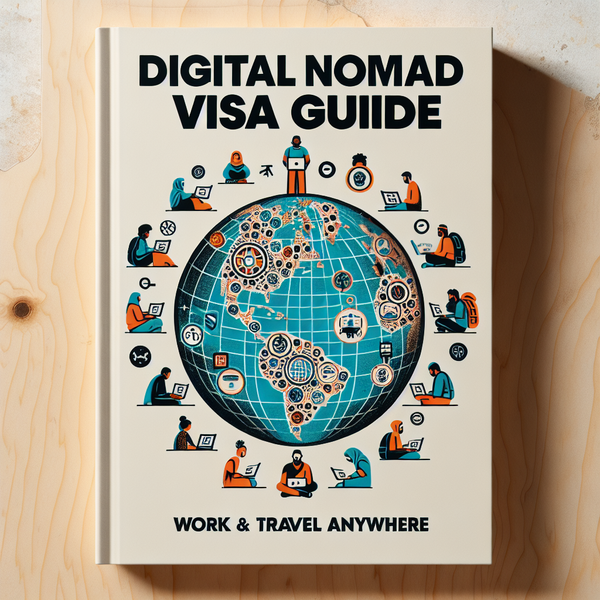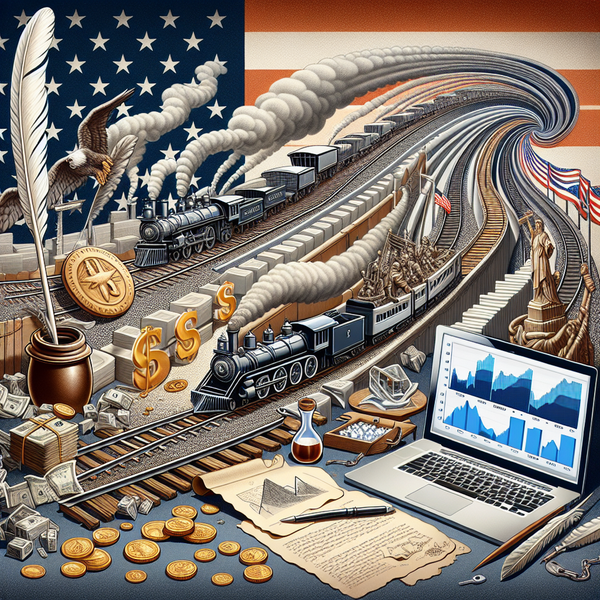How Trade Wars Have Shaped Global Economies

The Profound Impact of Trade Wars on Global Economies
Peel back the intricate layers of international economies and you'll find a rich tapestry woven by decades of trade agreements, negotiations, and, inevitably, trade wars. The dynamics of these economic battles, where nations wield tariffs and trade policies as their weapons, have played a critical role in shaping the global landscape. From the smallest developing countries to the largest economic superpowers, no nation is immune to the ripple effects of these fiscal conflicts. This exploration delves into the complexities of trade wars and their enduring impact on global economies.
Introduction to Trade Wars
Trade wars, a situation where countries restrict each other's trade by imposing tariffs or quota restrictions, have been an integral part of global economic history. They are driven by the desire to protect domestic industries and jobs, often at the expense of international trade and cooperation. The core principles behind trade wars are rooted in economic theories such as protectionism and mercantilism.
Protectionism and Mercantilism
Protectionism advocates for the restriction of imports in an economy through methods like tariffs, quotas, and subsidies, with the aim to protect local businesses and jobs from foreign competition. In contrast, Mercantilism is an economic theory that promotes governmental regulation of a nation's economy for the purpose of augmenting state power at the expense of rival national powers.
Historical Background of Trade Wars
Trade wars have shaped global economies massively, particularly in the 20th century. The most infamous example of a trade war is the one that happened during the Great Depression in the 1930s. The Smoot-Hawley Tariff Act, passed by the U.S. Congress in 1930, imposed tariffs on over 20,000 imported goods.
The Impact of Smoot-Hawley Tariff Act
The intended purpose of the Smoot-Hawley Tariff Act was to protect American jobs and farmers from foreign competition. However, it sparked retaliatory tariffs from other countries, leading to a decrease in international trade. This further deepened the Great Depression and slowed down global economic recovery.
Modern-Day Trade Wars
In the contemporary global economy, trade wars continue to shape the economic landscapes. A recent example is the U.S.-China trade war initiated by former President Donald Trump's administration.
The U.S.-China Trade War
In 2018, the U.S. imposed tariffs on billions of dollars' worth of Chinese goods, citing unfair trade practices and intellectual property theft by China. In response, China imposed retaliatory tariffs on U.S. goods. This trade war has reshaped global supply chains and affected a wide range of industries, from technology to agriculture.
Effects of Trade Wars on Global Economies
Trade wars tend to have a negative impact on global economies. They lead to increased prices for goods due to tariffs, disrupt international supply chains, and cause economic uncertainty, which can lead to decreased investment. However, some industries or sectors within a country may benefit from protectionist policies in the short term if they face less competition from abroad.
Insights and Conclusion
While trade wars are driven by the desire to protect domestic industries and jobs, history has shown that they often lead to negative consequences for global economies. Thus, cooperation and negotiation through international trade agreements are crucial for a healthy global economy. In an increasingly interconnected world, the impact of trade wars is far-reaching, influencing not just the economies involved but also the global economic landscape.
Use Case 1: The US-China Trade War and Its Impact on Global Economy
The US-China trade war, which began in 2018, serves as a prime example of how trade wars can shape global economies. The tension started when the US imposed tariffs on billions of dollars' worth of Chinese goods, to which China retaliated by imposing tariffs on US goods. The outcome was a ripple effect that influenced global economic dynamics. Impact on the US and China: The trade war led to increased prices for consumers and producers in both countries. The US faced reduced exports and job losses in industries reliant on trade with China, while China experienced slowed economic growth. Global Impact: The trade war disrupted global supply chains, as businesses had to find alternatives to Chinese goods. Emerging economies, such as Vietnam and Bangladesh, benefited as businesses relocated there to avoid tariffs. However, the global economy as a whole experienced uncertainty, which led to reduced investment and slower growth.
Use Case 2: The Smoot-Hawley Tariff Act and its Global Repercussions
The Smoot-Hawley Tariff Act of 1930, enacted by the United States, is another significant example of a trade war. This act dramatically raised import taxes on over 20,000 imported goods in an attempt to protect American businesses during the Great Depression. Domestic Impact: While the act was initially intended to protect domestic industries, it resulted in reduced imports and exports, leading to job losses, decreased consumer purchasing power, and deepening the effects of the Great Depression. Global Impact: The Smoot-Hawley Tariff act led to retaliatory tariffs from other countries. Global trade reduced by about 66% between 1929 and 1934, contributing to the severity and length of the global Great Depression. This historic event highlighted the potential of trade wars to trigger global economic crises.
Use Case 3: Brexit and the European Economy
The United Kingdom's decision to leave the European Union, known as Brexit, can also be seen as a form of trade war, as it involves significant changes in trade policies. Impact on the UK and EU: Brexit has resulted in increased trade barriers between the UK and EU. The UK has experienced a decline in trade, increased inflation, and a weaker currency. EU countries have also faced reduced exports to the UK. Global Impact: Brexit has created uncertainty in the global economy, affecting international investments and trade. Countries trading with the UK and EU have had to renegotiate trade agreements, affecting global trade dynamics. Title: Understanding the Impact: How Trade Wars Have Shaped Global Economies Introduction Trade wars, a phenomenon where countries impose tariffs or quota restrictions on each other's goods, have played a significant role in shaping the global economies. These economic battles, often driven by political motives, have both immediate and long-term impacts on the participating countries and the world economy at large. The Immediate Impact of Trade Wars Trade wars often lead to immediate repercussions for the countries involved, primarily in the form of increased prices for goods and services. When countries impose tariffs, it increases the cost of imports, subsequently driving up the prices for consumers. For instance, the US-China trade war that began in 2018 saw an escalation in tariffs, leading to increased prices of various goods in both countries. Trade Wars and Economic Slowdown Studies have consistently shown that trade wars can cause an economic slowdown. The World Bank has warned that trade tensions between major economies could cause a significant slump in global growth. A study by the Federal Reserve Bank of San Francisco found that the US-China trade war could cost the U.S. economy 0.3% of GDP growth in 2020. Impacting Global Trade Patterns Trade wars have a profound impact on global trade patterns. Countries involved in a trade war often seek new trading partners to avoid high tariffs, leading to a shift in global trade routes. During the US-China trade war, countries like Vietnam and Mexico saw an increase in exports to the U.S, as they filled the void left by China. Effect on Manufacturing Sector The manufacturing sector often bears the brunt of trade wars. Increased import prices lead to higher production costs for manufacturers, hitting their profit margins and potentially leading to job losses. This was evident during the US-China trade war, where U.S. manufacturers faced increased costs due to higher tariffs on imported Chinese goods. Long-Term Consequences of Trade Wars While the immediate impacts of trade wars are often negative, they can sometimes lead to long-term benefits for some economies. Trade wars can stimulate domestic industries as local goods become more competitive compared to high-tariff imports. This was the case for several American industries during the US-China trade war, which saw growth due to increased domestic demand. Conclusion Trade wars have a significant impact on global economies, influencing everything from consumer prices to global trade patterns. While they often lead to short-term economic pain, trade wars can also spur domestic industries and reshape global trading relationships. Despite these potential benefits, the consensus among economists is that free trade is a more effective path to global economic prosperity than trade wars. The complexities and uncertainties of trade wars highlight the importance of effective trade policies in shaping economic outcomes.
1. What is a trade war?
A trade war is an economic conflict where countries impose import tariffs or other restrictions on each other's goods. This typically results in retaliation and can negatively affect global trade.
2. How have trade wars shaped global economies in the past?
Trade wars have traditionally resulted in economic slowdowns, reduced international trade, and increased consumer prices. Historical examples, like the Smoot-Hawley Tariff Act during the Great Depression, illustrate that trade wars can exacerbate economic downturns.
3. What are potential impacts of trade wars on global economies?
Trade wars can lead to a decrease in international trade, increase consumer prices, disrupt supply chains, and cause economic instability. They can also impact foreign exchange rates and lead to job losses in certain sectors.
4. How do trade wars affect domestic economies?
While trade wars are intended to protect domestic industries, they often result in higher prices for consumers. Import tariffs increase the cost of imported goods, which can lead to inflation. They can also cause job losses in industries that rely on imported materials.
5. How can a country benefit from a trade war?
While the general impacts of a trade war are negative, some sectors within a country may benefit from import tariffs. If a country imposes tariffs on foreign goods, it can provide a temporary advantage to domestic industries that produce similar goods.
6. Can trade wars lead to economic recessions?
Yes, trade wars can lead to economic recessions. By disrupting international trade, causing market instability, and increasing consumer prices, trade wars can slow economic growth and potentially lead to a recession.
In conclusion, the examination of 'How Trade Wars Have Shaped Global Economies' underscores a universal truth that resonates across diverse industries and epochs; trade wars invariably leave an indelible imprint on the global economic landscape. They have profoundly influenced the trajectory of economic growth, international relations, and policy-making strategies, fostering an environment of uncertainty and volatility. Businesses, regardless of their industry or size, are affected either directly or indirectly, causing disruptions in supply chains and oscillations in market stability. Moreover, the historical perspective of trade wars provides invaluable lessons for contemporary policymakers, entrepreneurs, and stakeholders. It's crucial to understand that trade wars are not merely relics of the past; their implications are still unfolding in our current global economic scenario. Therefore, the study of trade wars is not just an academic pursuit but a practical tool for businesses and governments worldwide. It's an opportunity to learn from previous mistakes, devise robust strategies to mitigate potential risks, and navigate the complex world of international commerce with greater confidence and foresight. Thus, 'How Trade Wars Have Shaped Global Economies' is a fundamental resource for anyone seeking to comprehend the complexities of the global economy and the myriad ways in which international trade dynamics can impact various sectors and time periods.



